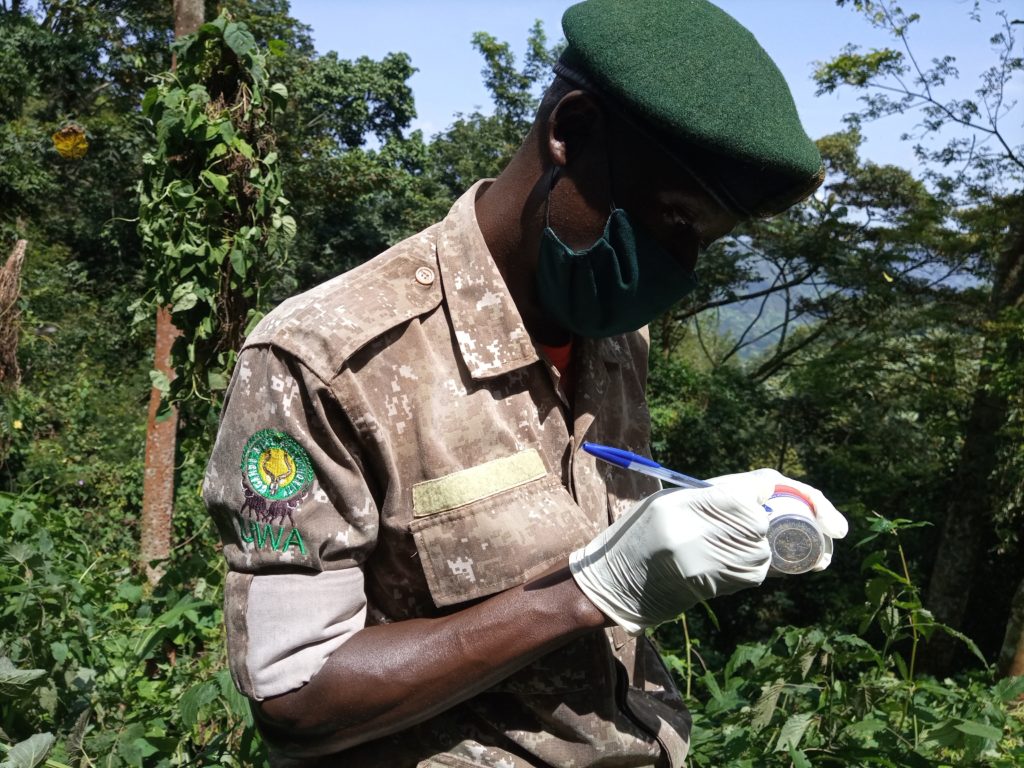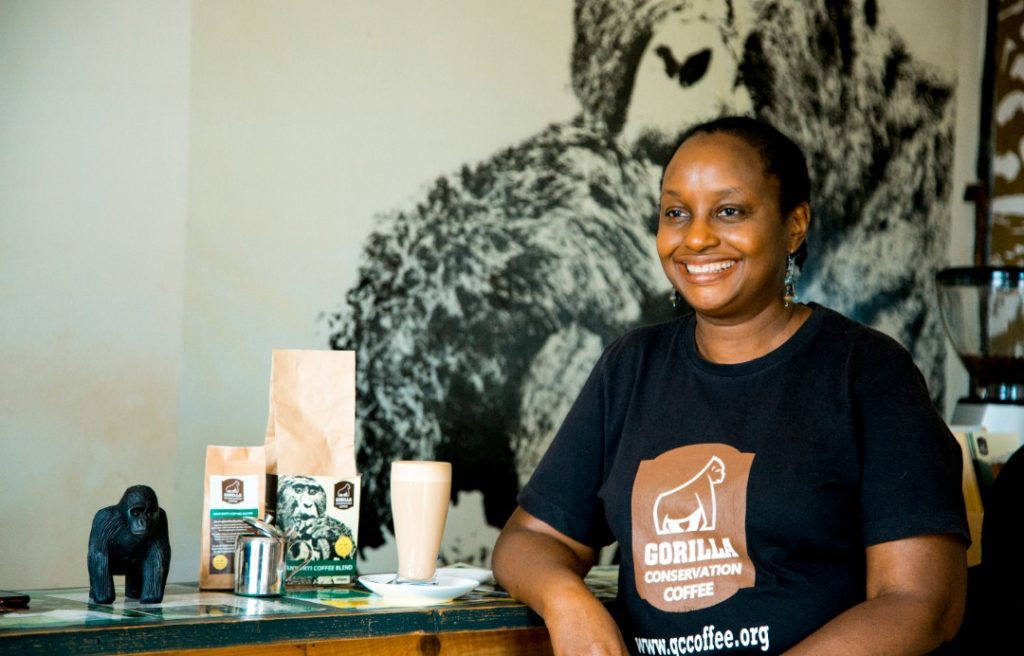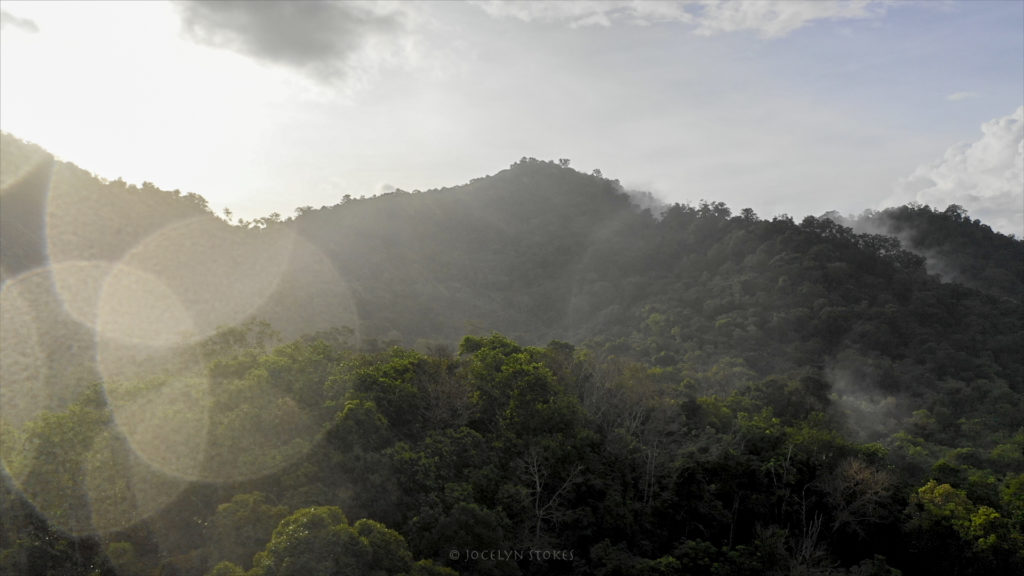Published: 11/13/2020
Dear Global Health Colleagues,
While many of us were anxiously pacing through a week-long election, the United States quietly but formally withdrew from the Paris Climate Agreement. While this withdrawal would have been detrimental to future generations, I am relieved that on January 20th, the United Nations will receive a letter from the newly inaugurated Biden Administration, declaring the US’s renewed participation.
In the years to come, no trend will be more defining to the field of Global Health than climate change. Unless we are willing to take action, lead with change, and continue to illuminate and understand the human health implications of our changing planet, global health will soon be defined by new pandemics, climate disasters, diminishing food supplies, increases in environmental disease transmission, and massive influxes of climate refugees.
We in the Global Health community have long eyed these trends with a sense of dread, but we have also taken action. Here at the Center for Innovation in Global Health, Human and Planetary Health is one of our three priority areas, and much of our work and the work of our collaborators is aimed at better understanding and solving these issues before they are exacerbated. It is the theme of much of the work of our colleagues and collaborators at the Woods Institute for the Environment, the Program for Disease Ecology, Health, and the Environment, as well as the subject of three new seed grants, one of which aims specifically to translate research in the field into policy and action in low-and-middle-income settings.
Human and Planetary Health addresses the interdisciplinary threats that are beating down humanity’s front door. It may be too late to entirely prevent the health consequences of anthropogenic activities, but by improving our understanding and quantifying the health impacts, we will be able to chart new courses of action to improve wellbeing, world-wide.
We invite you to dive in below into what I see as a largely hopeful newsletter, full of insights and opportunities in Human and Planetary Health.
In solidarity,
Michele Barry

Drs. Ben and A. Jess Shenson Professor of Medicine and Tropical Diseases
Director of the Center for Innovation in Global Health
Senior Associate Dean for Global Health, Stanford University
Featured Article
Affordable health care can reduce incentive for deforestation, study finds
A Stanford led study, the result of over a decade of research, demonstrates that accessible health care may be a major asset in equitably protecting our remaining ecosystems. Read the article here and watch the accompanying video here.
Resources
Human and Planetary Health
- Lessons for handling COVID-19 from another animal virus (11/11): Stanford epidemiologist and Director of Research at CIGH Stephen Luby discusses the surprising results of a recent study on Nipah virus, a disease with no vaccine and a mortality rate of up to 70 percent, and how human infringement on natural environments can cause an increase in animal-to-human disease spillover.
- Opinion: To stop the next pandemic, we need to unravel the origins of COVID-19 (11/3): We still don’t know the origins of the novel coronavirus — Global Health Faculty Fellow David A. Relman makes a strong case for prioritizing its discovery.
- Environmental data justice (11/1): Until we decolonize our data, we will continue to conduct research that neglects the disenfranchised populations. This feature in The Lancet makes a case for an Environmental Data Justice movement, and shows us how our longstanding approaches to research in Human and Planetary Health fails to serve the populations most affected by these issues.
- A global network of marine protected areas for food (10/26): Healthy oceans provide a wealth of ecosystem services to humanity, including as essential food supply for billions around the world. This study examines how increasing marine protected areas can ensure increased catches around the world and reduce food insecurity.
- Long-term effects of PM2·5 on neurological disorders in the American Medicare population: a longitudinal cohort study (10/19): Here in California, we are all too familiar with the hazards of air quality, but this study presents a new concern for exposure to PM2.5 particulate matter: dementia.
Global COVID-19 Trends
- Covid-19 vaccine from Pfizer and BioNTech is strongly effective, early data from large trial indicate (11/9): Promising news from the Pfizer vaccine, with a probable rollout for select individuals in mid-December.
- Emergency use authorization for COVID-19 vaccines: lessons from Ebola (11/5): This article helps us understand how emergency vaccine authorisations for Ebola, which occurred in drastically different circumstances, differ from COVID-19.
- Rich states’ Covid deals ‘may deprive poor of vaccine for years’ (11/3): In a “frenzy of deals”, wealthy governments around the globe are buying up the majority of available vaccines ahead of releases, potentially causing delays in an equitable rollout that would stretch distribution to low income countries far into the future, as far as 2024 by some estimates.
Regional and Country-Specific COVID-19 News
- U.S. Hits a Record 121,000 Daily Cases (11/7): While glued to the election news and Trumps latests erosions to American democracy, the novel coronavirus rages on.
- Denmark to kill 15 million minks after coronavirus mutation spreads to humans (11/5): Look no further for a better example of horrific consequences of overlooking One Health.
Note from our Colleagues in the Field
Responding to COVID-19 through a One Health approach to gorilla conservation in Uganda

| Dr. Gladys Kalema-Zikusoka, Founder and CEO, Conservation Through Public Health |
Because of their similar genetic makeup, gorillas and humans are able to transmit many diseases between one another. In the 1990s and early 2000s, fatal scabies outbreaks in critically endangered mountain gorillas were traced back to the local human community that suffered from inadequate health services. In response, we founded Conservation Through Public Health(CTPH), a non-profit focused on preventing zoonotic disease transmission from animals to humans and vice-versa.
At CTPH, we subscribe to the idea of One Health. Like Human and Planetary Health – One Health acknowledges the inherent interdependence of human, animal, and ecosystem health and requires a multi-sectoral approach in order to protect both humans and animals from disease. When the COVID-19 pandemic began, our greatest concern was the spread of disease from tourists to the gorillas, as well as from the local human population when gorillas forage on their land. We built upon CTPH’s One Health model to respond to the pandemic, and joined the Uganda Ministry of Health COVID-19 Taskforce that is guiding the national response to also protect great apes during the pandemic.

Working closely with Uganda Wildlife Authority (UWA), International Gorilla Conservation Programme, Mountain Gorilla Veterinary Project/Gorilla Doctors, Max Planck Institute and Bwindi Community Hospital, CTPH trained park rangers and porters to prevent the spread of COVID-19 between people and from people to gorillas using cloth masks made by a local enterprise, Ride for a Woman. Gorilla viewing rules were upgraded to introduce mandatory wearing of face masks, hand washing, disinfection, taking of temperatures, and the viewing distance increased from 7 to 10 meters.

The economic effects of the pandemic are also impacting local communities, resulting in a subsequent impact on wildlife. The suspension of tourism in Uganda led to the tragic death of a lead silverback gorilla, speared by an impoverished, hungry poacher hunting duiker and bush pigs to feed his family. This close encounter also put the gorillas at risk from human disease.

To address hunger brought about by the lack of tourism income, CTPH re-engaged reformed poachers with group livestock projects and started a new program distributing fast growing seedlings to vulnerable community members. Nevertheless, CTPH’s Gorilla Conservation Coffeesocial enterprise continued providing an income for coffee farmers with support from Moneyrow Beans and Pangols, our first distributors in the UK and US.
Travel is unlikely to resume to previous levels until a vaccine is found. CTPH is beginning to conduct COVID-19 testing of gorillas and those who interact with them, as well as continue raising funds to support UWA and Bwindi local communities in this critical time.
To Learn more, please visit www.ctph.org and www.gccoffee.org or follow them on Twitter at @CTPHuganda and @GCCoffee1.
Stanford Global Health Faculty Fellow Feature
5 Questions with Dr. Shuchi Anand on research at the intersection of Human and Planetary Health
Nephrologist Shuchi Anand discusses how Stanford Global Health opportunities enabled her to pursue an elusive kidney disease and its likely environmental causes. Read the article here.
Stanford Global Health Opportunities
Global Health Equity Scholars (GHES) Fellowship
The Global Health Equity Scholars (GHES) Fellowship is currently receiving applications for a one-year mentored research training program for post-doctoral fellows, upper-level PhD students and professional school (MD, DVM, DrPH, PharmD) students in low- and middle-income countries. The GHES Fellowship is part of the Global Health Program for Fellows and Scholars sponsored by the Fogarty International Center (FIC) and several collaborating institutes and centers at the National Institutes of Health (NIH). The deadline for applications is November 15, 2020. For more information contact Stanford GHES Program Manager Olivia Paige at olivia.paige@stanford.edu. Learn more here.
2021 Global Health Research Convening – Call For Abstracts
The 7th Annual Global Health Research Convening will be held virtually on January 28, 2021. The Convening is a one-day event bringing together students, faculty and researchers working in global health. This year’s theme is “Research During Pandemics.” While keynote speakers will present on this theme, the Convening welcomes research from all areas of global health. Abstracts will be selected for posters and verbal presentations. Non-Stanford affiliates are welcome to apply. Submissions are due by 5pm on November 16, 2020. Learn more here.
The Bay Area Global Health Innovation Challenge
The Bay Area Global Health Innovation Challenge is a competition hosted by the University of California, Berkeley, Stanford University, and the HealthRoots Foundation for Global Health in partnership with UCSF, UC Davis, and the Bay Area Global Health Alliance. We offer student teams from all schools, disciplines, and degree levels (undergrad through post-doc) the opportunity to present their ideas for low-cost, high-impact, and scalable global health solutions to world leaders in health, tech, design, and impact investing. All finalist teams receive powerful mentorship and development opportunities from expert judges, mentors, and advisors— and one team goes home with the $10,000 HealthRoots Grand Prize. Applications are being accepted now and the deadline is December 15, 2020. Learn more and apply here.
WomenLift Health’s 2021 US Leadership Journey
WomenLift Health is part of the Stanford Center for Innovation in Global Health. The fully-funded, 12-month WomenLift Health Leadership Journey imparts contextualized leadership skills to address the individual, organizational, and societal challenges that women leaders in global health face. The Journey will be buttressed by virtual learning, mentoring, coaching touchpoints, week-long learning residencies, as well as a Leadership Project. The 2021-2022 Leadership Journey will take place from March 2021 – March 2022 in an all-virtual format. The deadline for applications is December 19, 2020. Learn more here.
2021 CARE Summer Research Immersion (CARE-SRI)
The CARE-SRI Program is an immersive 8-week summer internship in Data Science and Vulnerable Populations for undergraduate and graduate students, with a focus in Asian Health. This exceptional program leverages the unique aspects of Stanford’s world-class research, technology, and medical infrastructure to train learners to become superb population science researchers. Students will carry out two research projects throughout the summer: 1) a large database research focused on precision medicine, and 2) a specific mentored research projects with individual faculty. Most students are predicted to submit 1-2 manuscripts for publication to a peer reviewed journal along with their team members. All students are welcome to apply (no Stanford affiliation is required) and applications are due by February 5, 2021. Learn more here.
Upcoming Events
Environmental Justice and Sustainability Seminar | Disparities in PM2.5 Air Pollution in the United States
Hosted by the Woods Institute for the Environment & the Bill Lane Center for the American West
Nov 13, 2020 | 12-1 PM PT
Open to all. Register here
Air pollution at any given time is unequally distributed across locations. Average concentrations of fine particulate matter smaller than 2.5 micrometers in diameter (PM2.5) have fallen over time. However, we do not know how the spatial distribution of PM2.5 has evolved. In a recent study published in Science, Professor Colmer and co-authors, provide early evidence. Combining 36 years of PM2.5 concentrations measured over ~8.6 million grid cells with geographic, economic, and demographic data from ~65,000 U.S. census tracts they show that differences in PM2.5 between more and less polluted areas declined substantially between 1981 and 2016. However, the most polluted census tracts in 1981 remained the most polluted in 2016. The least polluted census tracts in 1981 remained the least polluted in 2016. The most exposed subpopulations in 1981 remained the most exposed in 2016. Overall, absolute disparities have fallen, but relative disparities persist. Professor Colmer will discuss this research alongside other work that the Environmental Inequality Lab has been doing exploring the consequences of air pollution disparities on economic opportunity and social mobility.
The 2021 Global Health Research Convening
Hosted by the Center for Innovation in Global Health
Jan 28, 2021 | Virtual
Open to all.
Registration opens soon. Learn more here.
The 7th Annual Stanford Global Health Research Convening will be held virtually on January 28, 2021. The Convening is a one-day event bringing together students, faculty and researchers working in global health.This year’s theme is “Research During Pandemics.” While keynote speakers will present on this theme, the Convening welcomes research from all areas of global health. Abstracts will be selected for posters and verbal presentations. Submissions are due by 5pm on November 16th, 2020. We welcome abstracts from non-Stanford affiliates as well.
Funding Opportunities
A $495,000 funding opportunity for junior physician-scientist faculty conducting clinical research in any disease area. Stanford Assistant Professors with UTL, MCL, NTLR, and CE appointments and Instructors who were appointed to their first post-training, full-time position between December 1, 2016, and December 1, 2019 are eligible (see eligibility for additional criteria). Pre-proposal (required) deadline: November 13, 2020, 3 pm ET
Stanford’s Research Management Group has created a website that provides a complete listing of funding opportunities for COVID-19 research available to all researchers (not just at Stanford).

